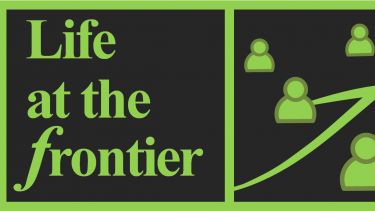‘Life at the Frontier’ – project launch

Event details
Description
You are warmly invited to the project launch of ‘Life at the Frontier’ hosted by the University of Sheffield Migration Research Group (MRG). The seminar will be chaired by Helen Grady, Senior Broadcast Journalist for BBC Radio 4 with presentations from Professor Gwilym Pryce (Sheffield Methods Institute and Department of Urban Studies, University of Sheffield), Professor Liv Osland (Western Norway University of Applied Sciences), and Professor Urban Lindgren (Umea University, Sweden). There will be contributions also from Lord David Blunkett, and a range of stakeholders from the UK, Norway and Sweden.
For LATF related research queries, please contact Gwilym Pryce: g.pryce@sheffield.ac.uk
Social mobility, segregation and the integration of migrants (LATF)
Successful integration entails migrants being able to achieve “outcomes within employment, housing, education, health etc. which are equivalent to those achieved within the wider host communities” (UK Home Office report, 2004). We argue in this webinar that for migrants to achieve this vision of integration they need to be socially mobile: able to progress in terms of educational achievement and employment.
Social mobility is an intrinsically dynamic concept, describing the degree of movement between different layers of the social hierarchy. It is also profoundly spatial. Opportunities to achieve social progression are affected by where we live, where we go to school, who we have contact with and the risks we are exposed to. Our contention is that the degree and type of segregation that migrants experience will therefore determine the extent to which they can achieve equality and true integration.
In contrast to this dynamic, spatial vision of integration and the barriers that hinder it, the standard measures and conceptual frameworks used by academics and academia for assessing integration are curiously static and non-spatial. We therefore argue for a new research agenda that develops measures of integration that capture spatial and dynamic drivers of integration.
With this renewed vision for integration in mind, we propose a set of empirical methods for refocusing integration policy and debate. In so doing, we highlight a particularly important, yet overlooked, form of segregation: ‘social frontiers’. These occur when there are sharp spatial transitions between adjoining communities, cliff edges in the social landscape that limit contact between groups and foster territorial behaviour. We think that the existence of social frontiers has the potential to limit the wellbeing and social mobility of migrants and other minority groups.
The webinar marks the launch of a significant new project funded by Nordforsk and the ESRC that will compare and contrast the social integration of migrants between neoliberal societies (the four nations of the UK) and socioliberal ones (Norway and Sweden).
